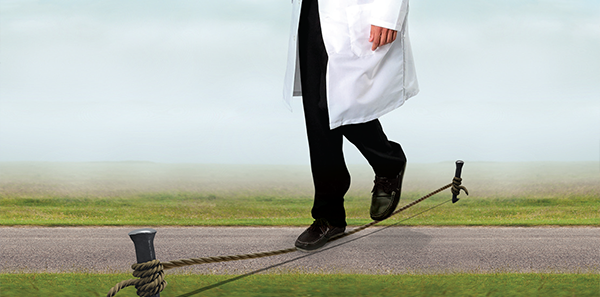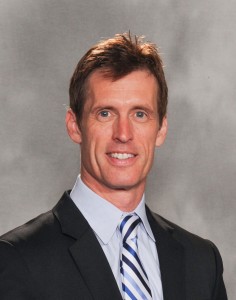
Due to my background, I speak from a position of relative safety. That safety can create complacency with respect to our pursuit of equality and cultural sensitivity.
Explore This Issue
ACEP Now: Vol 35 – No 06 – June 2016People who think diversity and cultural sensitivity is a special interest may think so because they are somewhat removed from the impact it may have on others’ daily lives.
Is there oppression? It seems like a harsh term, but yes. I have heard too many stories of those changing their behavior to conform or shield themselves from scrutiny. In my opinion, that is oppression.
Shift in Perception
Wow, my eyes are wide open. My culturally diverse friends have become conditioned to accept what others may assume no longer takes place. When you conform or cloak/disguise yourself to hide from social bias and criticism, you must lose a big piece of who you are. Further, once you have decided to acquiesce, those on the outside hear nothing and see normalcy, but distance and resentment may grow on the inside. Silence harbors further division.
Cultural sensitivity is not a cliché, it’s not a special interest and it’s not something that “those people talk about.” Ignorance is no longer an excuse and silence is no longer acceptable. We collectively own this issue.
If I were homosexual, African-American, Hispanic, or in any other minority group, I believe I wouId feel angry if I were treated differently because of what I am and not who I am.
It’s unconscionable to cast a disparaging look or make a negative comment about persons with disabilities. So, please help me understand why other non-choices in life easily lead to judgment from others. I did not choose to be a male, Caucasian, or heterosexual. I just am. It‘s not subject to debate, nor a basis for challenge, because I also just happen not to be something else. This is what I am, but not entirely who I am.
We Can Do Better
Trying to really consider how others may feel, I would suggest that when it comes to cultural sensitivity, let’s not be “color blind.” This concept has always bothered me. Being blind to someone’s skin color doesn’t demonstrate compassion and acceptance; rather it condones ignoring a very important aspect of who that person is. Acceptance is all-inclusive and not a selective process.
My perspective of another is not impacted by their sexual orientation, and they certainly shouldn’t feel social pressure to publicly declare their sexuality, as if this information is a secret kept from society. Hiding or suppressing one’s identity due to societal pressure doesn’t make them more like everyone else. One attendee at the summit noted that heterosexuals do not have to declare their sexuality to others. Why then is there social pressure for homosexuals to disclose such intimate details?
Pages: 1 2 3 4 | Single Page





One Response to “ACEP Diversity Summit Promotes Cultural Sensitivity, Acceptance Among Members”
June 22, 2016
Mark Rabold, MDI just finished 30 years as an ER Doc and have always said “Thank God that the ER is the last bastion against the lunacy and stupidity of political correctness”. I was deeply saddened to see that this is no longer true. We used to be the no BS specialty and just did what needed to be done without bowing to political whims. It is sad that Dr. Klauer is now a true believer and thinks we should be too. It appears that I retired just in time. Best of luck folks! You are gonna need it.